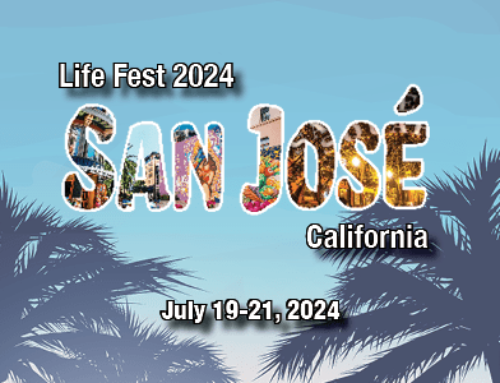We asked the amazing honorees of the first annual Women in Sarcoma Gala some personal questions to help us learn more about them, and their experiences. Have you RSVP’d for the Gala on Dec. 10 at 6PM ET? RSVP today for this free, virtual event, to be held in loving memory of GISTer Nikki Morales. Read about all our honorees here.
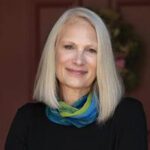
Denise Reinke. MS, NP, MBA – Recipient of the Women Paving the Path Forward Award
What are some obstacles you faced as a woman in the medical/research field?
As I reflect upon obstacles in the medical/research field, I cannot say the obstacles are gender related. The sarcoma field is one of the most collegial collaborative groups I have worked with in my career. Our obstacles have more to do with the relative rarity of the disease and hence the challenge of securing interest and support for making progress. Perhaps this challenge is part of what makes this group so strong…..we know we have to work together to make progress.
When did you know you wanted to be a medical professional?
My entree into the medical profession is nursing. I worked in cancer care and research the majority of my career. Helping people facing serious illness has been a great privilege. Expanding my nursing role as a nurse practitioner and as CEO of an academic sarcoma research consortium further extended my reach and ability to help make progress to improve treatments and outcomes.
Why did you choose the sarcoma specialty?
Like many great life opportunities, serendipity came into play. It was following a meeting with Dr. Baker at the University of Michigan, where I met him in my role as a medical science liaison. Dr. Baker had an idea for building a sarcoma research consortium. He recruited me to help build what went onto become SARC. I had no idea of where or how far this path would go….but it started with a simple meeting with a different purpose in mind and ended with a wonderful opportunity to work across the sarcoma community for the past 20 years.
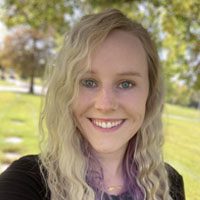
MaKayla Evans – Recipient of the Patient Leadership Award
What advice would you give to women diagnosed with sarcoma?
For women recently diagnosed with sarcoma/GIST, I would highly encourage them to seek a specialist of their specific diagnosis to be able to receive proper care. And if at any point you few unsure of the quality of care you are receiving, seek a second opinion.
2nd and something I find very valuable and important, “Do your own research!”and “Have a voice!” Being fully entrenched in the knowledge down to the genetics has been incredibly helpful in my own journey understanding my doctors, and understanding my options. The amount of doctors who have been impressed by my knowledge of my diagnosis is innumerable.
What inspires you to be an advocate for other GIST (sarcoma) patients?
From dealing with GIST Cancer myself, I do not feel obligated, but honored and excited to help advocate, educate and relate to others experiencing the same thing. Or for the many researchers and physicians on all levels to really be able to have awareness and understanding of such a rare often complicated disease.
This cancer isn’t treated like other cancers. And I’ve seen how it can go terribly wrong by not being seen by someone fully knowledgeable and experienced with a specific sarcoma. I love being able to connect with people in the GIST community. We can offer each other support, understanding, and camaraderie on all levels of this journey.
Advocacy is one persons way to gain awareness, thus in turn to gain hundreds and thousands of advocates. It always starts with the 1!
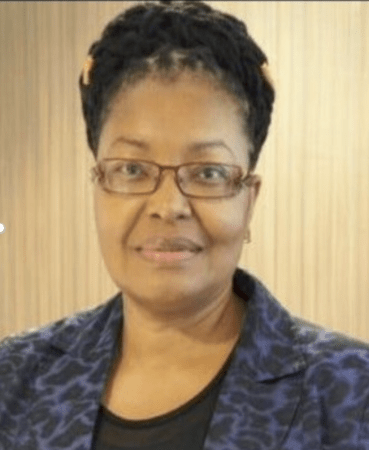
Florence Thwagi – Recipient of Global Patient Leadership Award
What advice would you give to Sarcoma Patients?
Sarcoma is not a death sentence,learn about your illness,advocate for yourself,do not stress the small stuff and never give up hope.
What inspires you to be an Advocate?
The smiles on patients’ faces, their resilience and zeal for life.
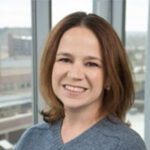 Dr. Breelyn Wilky – Recipient of the Innovative Sarcoma Leadership Award
Dr. Breelyn Wilky – Recipient of the Innovative Sarcoma Leadership Award
What are some obstacles you have faced as a woman in the medical field?
I have been very lucky to have incredibly supportive mentors, both men and women who helped me in various aspects of my professional development – in the lab, for clinical trials, and in patient care. I think it’s always challenging, particularly as you’re starting out, to feel confident in your voice in the room, especially when that room has many vocal, accomplished, and opinionated men! But for me, being conditioned in that environment only made me more confident in myself and not being afraid for my opinions to be heard. That’s one of my favorite things about the sarcoma community. Our community makes themselves accessible and I’ve found everyone with very few exceptions to be highly invested in supporting the next generation of young women faculty.
In particular, I found that reaching out to women leaders in sarcoma outside of my institution was very doable and well received, whether it was a question about a patient care issue, a more personal issue about work/life balance, or deciding about new career opportunities. So I have tried to emphasize with my colleagues and mentees to not be afraid to speak up, to reach out to others in the field outside your institution. We have to look out for each other and make the effort to collaborate in a small community, and our collective success will only pay off for our patients!
When did you know you wanted to be a medical professional?
I have wanted to be a doctor as long as I can remember! I was obsessed with the human body and science since I was a child. I worked as an EMT in college and loved finally being able to take care of patients, so my decision to go to medical school wasn’t a surprise to anyone. But it wasn’t until my oncology fellowship that I realized how much I loved research, and how essential clinical trials and the hope for new therapies was to my happiness as an oncologist.
Why did you choose sarcoma as your specialty?
As a fellow, I remember during my first week of consults managing a sarcoma patient with Dr. Katie Thornton, the queen of sarcoma at Johns Hopkins. I was amazed by how little we had to offer sarcoma patients in terms of standard therapies, and how much the research was lagging behind compared to other cancers. And I saw through those early experiences what an incredible group of patients and families were affected by these cancers. So I knew that sarcoma was where I wanted to dedicate my career – I felt like any of the smallest discoveries or ideas that I might come up with had the potential for huge impact for these rare diseases.
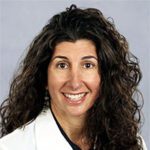 Dr. Gina DAmato – Recipient of the Innovative Sarcoma Leadership Award
Dr. Gina DAmato – Recipient of the Innovative Sarcoma Leadership Award
What are some obstacles you have faced as a woman in the medical field?
I haven’t necessarily faced obstacles as a woman per se. Early in my career I did have some obstacles in that I felt at times I was being under-estimated but that could have been due to my age or inexperience. I never really felt it was due to my gender. All of my mentors have been men and they have really helped me with my career. When I first started out in oncology, the field was dominated by men, which never really bothered me. However, now that I have more women colleagues it’s really exciting to be able to bond with them in a way that I am not able to with male colleagues.
When did you know you wanted to be a medical professional?
Very early on in school when I liked science and math and got good grades, my parents and teachers told me I should be a doctor. Then when I was a sophomore in high school, my sister who was 17 and a senior in high school developed stage 3 Hodgkin’s Lymphoma and was cured by chemotherapy. From that point on I knew that I wanted to be a doctor who treated cancer and help find better treatments than chemotherapy.
Why did you choose sarcoma as a specialty?
Actually, I always wanted to specialize in lymphoma because of my sister (who turns 50 on Dec 8), and I had a great lymphoma mentor at Moffitt Cancer Center during my fellowship, however, he left to become a cancer center director at another institution and I was left without a project. At the same time, Dr. Letson, orthopedic oncologist and director of the sarcoma program was desperate to find a sarcoma medical oncologist (at the time there wasn’t one at Moffitt). He and Dr. Jonathan Trent, who was at MD Anderson at the time, arranged a remote mentoring program and the top sarcoma experts at the time helped me. I am very grateful to Dr. Trent, Dr. Benjamin, Dr. Maki, Dr. Demetri and Dr. Baker who have helped me all these years. I am especially grateful to Dr. Trent who has helped me out the most for 17 years and now I finally get to work with him in the same institution!
When I was a medical student and resident at Miami, I saw many sarcoma patients and also I have a good friend who went to high school with my sister and me. He was diagnosed with sarcoma when we were in college and was treated at the University of Miami. He had a rough time with the chemotherapy and my family and I helped support him and his family due to our experience with my sister. This year he will be celebrating 30 years of being cancer free. What also attracted me to sarcomas are that they are rare cancers, and they affect both men and women and all races, ethnicities and ages. I also feel that the sarcoma patients are the nicest patients, of course that is my very biased opinion. ;-)
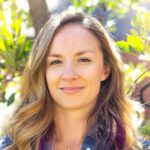 Dr. Lillian Klug – Recipient of the Young Female Sarcoma Leadership Award
Dr. Lillian Klug – Recipient of the Young Female Sarcoma Leadership Award
What are some obstacles you have faced as a woman in the medical/research field?
Impostor syndrome is the most significant obstacle that I have faced. While impostor syndrome, or the feeling of being a fraud or an impostor within your field/group, is thought to be generally self-imposed, the experiences that leads to an individual feeling like an impostor are perpetuated and exacerbated by societal norms. This phenomenon is common, especially among women in historically male dominated fields, and I experienced it in mid to late graduate school. Gender-based microaggressions that questioned my scientific ability, or my ambition made me start to feel inadequate, especially as I saw so many of my peers excelling. I doubted my ability to finish graduate school and even if I did, I wasn’t sure I was a good scientist.
I did overcome it though, but not without support. Supportive networks and open communication/dialog about tough issues are so very important for all trainees, but especially for retaining women in research. My experience was mild compared to many of the women I have talked to. Sexism and sexual harassment are common in research and it is because of experiences with these that many women leave research all together. There is so much more we can do to be better in the research community. I am determined to push for change for the better to bring more women into science and retain those that are already here.
When did you know you wanted to be a medical professional?
I had always been fascinated by science, biology in particular, from a young age. My mom, a nutrition researcher, was the first to encourage me to explore science. I began doing research in college in a plant genetics laboratory, and while I loved the techniques we performed in the lab, I knew I wasn’t passionate about botany. I felt called to do research that had an impact on human health. After graduating, I gained research experience in a variety of areas including developmental neuroscience, genetics, and biochemistry. When I finally found cancer biology I realized that it incorporated all elements of molecular and cell biology that I found fascinating and had so many opportunities and interesting questions. Pursuing my graduate training at a teaching/research hospital (OHSU) gave me the amazing opportunity to do translational basic research that would eventually impact patients.
Why did you choose sarcoma as a specialty?
I was very fortunate to land in Dr. Michael Heinrich’s lab for my PhD work investigating novel therapeutic targets in GIST. Many things about the GIST field aligned with my research interests and values. First of all, Dr. Heinrich’s extensive experience in the field and his involvement in clinical trials means that the research we do is highly translational– it has the potential to directly inform patient care and be informed by clinical observations. Secondly, the GIST research community is fairly small, but extremely collaborative and inclusive. Having a small engaged community of other GIST researchers has been invaluable to my development as a GIST researcher. Finally, I am continually amazed by the incredible level of engagement with and support for GIST basic research from GIST patients and advocates. It is a truly special. I have felt so privileged to be able to share my research with GIST patients. They inspire the work that I do every day.
Our Gala Sponsors

Interested in being a Women in Sarcoma Event Sponsor?

